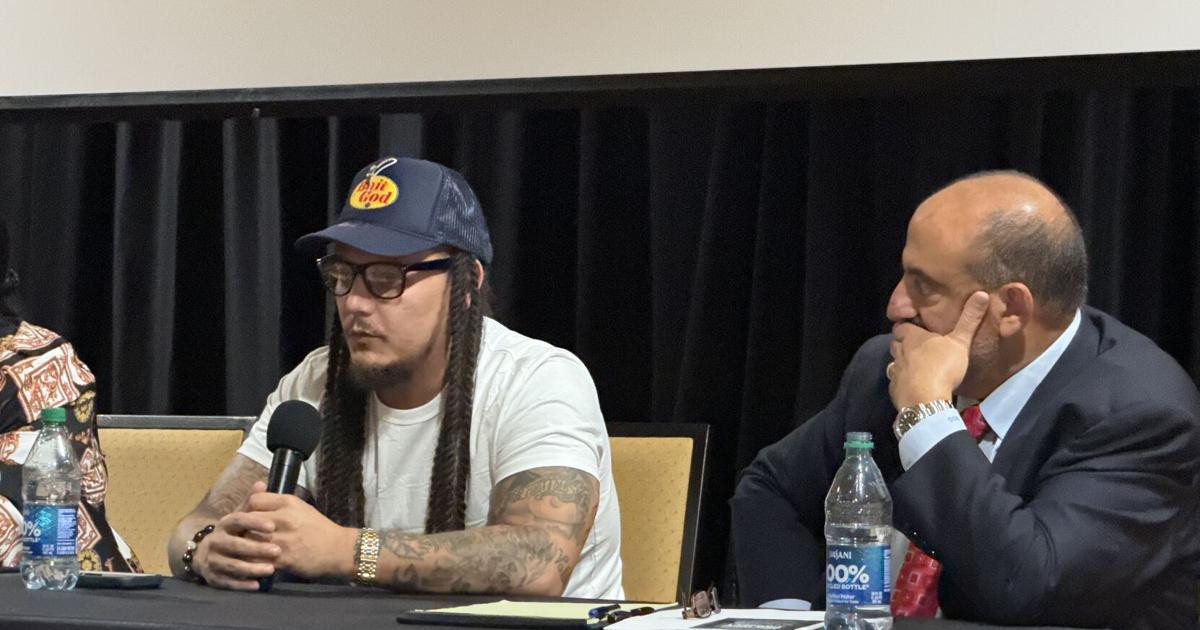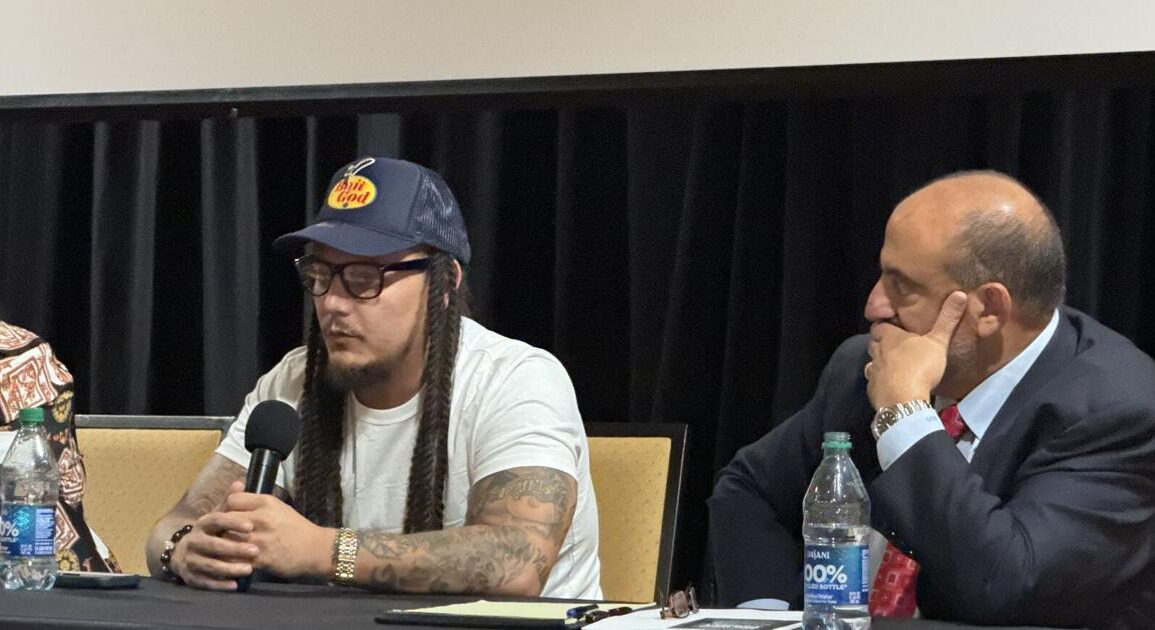
VALDOSTA – A film screening of “The Reformation Project” addressing social justice issues within the State of Georgia’s criminal justice system prompted discussions from a crowd Wednesday evening.
The project was sponsored by the Georgia Power Company, One Sumter Economic Development Foundation and the Greater Valdosta United Way, and it was produced by Steven Heddon and Angela Ward, of Fusion Creative Marketing and The Game Changers, respectively.
The screening marks the film’s second running in Valdosta following its premiere at the Valdosta Performing Arts Center after initial screenings in Americus. The showing was held within the Valdosta State University University Center’s Magnolia Room at 6 p.m. was opened with welcoming remarks from Georgia Power Southwest Regional Director Joe Brownlee.
He first addressed why Georgia Power would be involved with a criminal justice reform initiative: He said there are some improvements that have been made in our society in regards to how people treat each other, but there is more potential for improvement in the way systems operate.
“Young black males are still incarcerated at a much higher rate than other groups. There’s a million reasons for that and I don’t know if we’ve figured all that out. But we do know that we can’t keep doing the same thing,” Brownlee said.
Throughout the screening attendees viewed testimonials from people previously incarcerated, law enforcement, and organization leaders who spoke about controversial issues such as police defunding, the creation of future prisons and the effect of closing state psychiatric hospitals, which led to the increased incarceration of people with mental illness.
A panel discussion followed the showing and was moderated by Dr. Bobbie Ticknor, an associate professor in the Department of Sociology, Anthropology, and Criminal Justice at Valdosta State University, and included attorney Sam Dennis, owner of Urban Ink Body Art Tony Tong, who was formerly incarcerated, and the film’s producers, Steven Heddon and Angela Ward.
The panel began conversations about the hardships experienced by those incarcerated and their families, and their steps back into society — as well as potential solutions to preventing juvenile offenders.
Ticknor: As you were doing this documentary, what surprises did you find? What things did you not anticipate as you were doing this project? She also asked about their inspiration behind pursuing or participating in the project.
Ward: The main thing that inspired me was [that] I want to keep it real. It was important for me, in the film, to show both sides. It’s easy to say [that] it’s all white people or all black people. No, it’s all of us. Let’s look at the actual numbers.
Tong: As I become more prevalent and prominent in myself and the things I’ve aspired to do in my life, I’ve become more active socially in helping to be a voice for people who don’t have a voice. I shared my story to create enlightenment for those.
Hendon explained when he met LaVal Castleberry, a formerly incarcerated cocaine dealer, their first conversation changed his entire perspective on how to approach the topic.
Tong said it surprised him that major companies and even local non-profits were willing to partner and wanted to start the conversation about the system.
When the panel opened for questions from the audience, Carol Moore with the Lanier County News was the first to speak. Her earlier career was 25 years as the public information officer for the Oklahoma Department of Mental Health and Substance Abuse Services.
“I admire and appreciate the fact that you are opening this discussion. You cannot be in mental health and not recognize that almost immediately that corrections and mental health trade populations all the time. It is the same in Oklahoma as it is here,” Moore said. “You cannot separate criminal justice and mental health.”
She did not know that Georgia’s psychiatric hospitals were closed and said it is concerning because they’re fewer options or resources for those in need.
Ticknor replied, “Starting in the 1940s and ’50s we did see they started to close down all the mental health psychiatric wards and hospitals. There was no place to put the people, so they funneled them right into the prison system and that’s why today we see 2.2 million people in the prison system. Think about that 2.2 million people, and there’s a large percent. I believe it was 72% that have a diagnosable mental health disorder.”
Comments were also made on the profit and budgeting of the system.
Ticknor said, “Of course, there’s profit involved in all of this. Just the commissary here alone at Valdosta State Prison brings in over $1 million. That’s just the commissary in one prison.”
Dr. Jacqueline O’Kane, a family medicine physician and Air Force veteran, asked, “What can we do as individuals and a community to help?”
The panelists listed several options to address the issues. Among them: bringing more awareness to families affected by poverty, creating mentorship opportunities or programs for young children, and donating to organizations that assist people exiting the systems.
The Reformation Project will be shown online as part of CrimCon23, on Oct 20. Ticknor is the president of the Criminology Consortium, an international audience that hosts an annual online conference for researchers and practitioners to discuss their efforts in the criminal justice system.
This post was originally published on this site be sure to check out more of their content.









